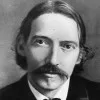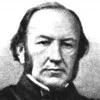The thinker sees his own actions as experiments and questions, as seeking explanations of something: to him, success and failure are primarily answers.
[Der Denker sieht in seinen eigenen Handlungen Versuche und Fragen, irgend worüber Aufschluss zu erhalten: Erfolg und Misserfolg sind ihm zu allererst Antworten.]Friedrich Nietzsche (1844-1900) German philosopher and poet
The Gay Science [Die fröhliche Wissenschaft], Book 1, § 41 (1882) [tr. Nauckhoff (2001)]
(Source)
Also known as La Gaya Scienza, The Joyful Wisdom, or The Joyous Science.
(Source (German)). Alternate translations:The thinker sees in his own actions attempts and questionings to obtain information about something or other; success and failure are answers to him first and foremost.
[tr. Common (1911)]A thinker sees his own actions as experiments and questions -- as attempts to find out something. Success and failure are for him answers above all.
[tr. Kaufmann (1974)]In his own actions, the thinker sees experiments and enquiries from which he seeks to obtain insight: to him, success and failure are, first of all, answers.
[tr. Hill (2018)]
Quotations about:
experiment
Note not all quotations have been tagged, so Search may find additional quotes on this topic.
Look, I tried the cat experiment. On the third trial, the cat was dead. On each of the subsequent 413 trials, it remained dead. Am I doing something wrong?
James Nicoll (b. 1961) Canadian reviewer, editor
Usenet post, “SCHRODINGER’S CAT??” sci.physics (11 Mar 1992)
(Source)
As an experimental psychologist, I have been trained not to believe anything unless it can be demonstrated in the laboratory on rats or sophomores.
Steven Pinker (b. 1954) Canadian-American cognitive psychologist, linguist, author
Words and Rules, ch. 4 (1999)
(Source)
If you try and take a cat apart to see how it works, the first thing you have on your hands is a non-working cat.
Douglas Adams (1952-2001) English author, humourist, screenwriter
Speech, Digital Biota 2 conference, Cambridge, UK (Sep 1998)
(Source)
Segments of this impromptu speech are quoted in Richard Dawkins, "Eulogy for Douglas Adams," Church of Saint Martin in the Fields, London (27 Sep 2001). A variant of the quotation ("If you try and take a cat apart to see how it works, you end up with a non-working cat. Do not try this.") is often attributed to that article, but the Dawkins eulogy contains the correct form of the quote.
That which we call sin in others, is experiment for us.
Ralph Waldo Emerson (1803-1882) American essayist, lecturer, poet
“Experience,” Essays: Second Series (1844)
(Source)
No facts are to me sacred; none are profane; I simply experiment, an endless seeker, with no Past at my back.
Ralph Waldo Emerson (1803-1882) American essayist, lecturer, poet
“Circles,” Essays: First Series (1841)
(Source)
Science, my lad, has been built upon many errors; but they are errors which it was good to fall into, for they led to the truth.
[La science, mon garçon, est faite d’erreurs, mais d’erreurs qu’il est bon de commettre, car elles mènent peu à peu à la vérité.]
Jules Verne (1828-1905) French novelist, poet, playwright
Journey to the Center of the Earth, ch. 31 (1864) [tr. Malleson (1877)]
(Source)
Alt. trans.: "Science, my lad, is made up of mistakes, but they are mistakes which it is useful to make, because they lead little by little to the truth."
Look, I tried the cat experiment. On the third trial, the cat was dead. On each of the subsequent 413 trials, it remained dead. Am I doing something wrong?
James Nicoll (b. 1961) Canadian reviewer, editor
“SCHRODINGER’S CAT??” sci.physics, Usenet (11 Mar 1992)
(Source)
Technically, a cat locked in a box may be alive or it may be dead. You never know until you look. In fact, the mere act of opening the box will determine the state of the cat, although in this case there were three determinate states the cat could be in: these being Alive, Dead, and Bloody Furious.
Every great improvement has come after repeated failures. Virtually nothing comes out right the first time. Failures, repeated failures, are finger posts on the road to achievement. One fails forward toward success.
Charles F. Kettering (1876-1958) American inventor, engineer, researcher, businessman
(Attributed)
(Source)
Indeed, proof that a given condition always precedes or accompanies a phenomenon does not warrant concluding with certainty that a given condition is the immediate cause of that phenomenon. It must still be established that when this condition is removed, the phenomenon will no longer appear.
It is one of the happy incidents of the federal system that a single courageous State may, if its citizens choose, serve as a laboratory; and try novel social and economic experiments without risk to the rest of the country.
I like the scientific spirit — the holding off, the being sure but not too sure, the willingness to surrender ideas when the evidence is against them: this is ultimately fine — it always keeps the way beyond open.
If there is such a thing as luck, then I must be the most unlucky fellow in the world. I’ve never once made a lucky strike in all my life. When I get after something I need, I start finding everything in the world I don’t need — one damn thing after another. I find ninety-nine things I don’t need, and then comes number one hundred , and that — at the very last — turns out to be just what I had been looking for.
For it is the mark of an educated man to look for precision in each class of things just so far as the nature of the subject admits; it is evidently equally foolish to accept probable reasoning from a mathematician and to demand from a rhetorician scientific proofs.
[πεπαιδευμένου γάρ ἐστιν ἐπὶ τοσοῦτον τἀκριβὲς ἐπιζητεῖν καθ᾽ ἕκαστον γένος, ἐφ᾽ ὅσον ἡ τοῦ πράγματος φύσις ἐπιδέχεται: παραπλήσιον γὰρ φαίνεται μαθηματικοῦ τε πιθανολογοῦντος ἀποδέχεσθαι καὶ ῥητορικὸν ἀποδείξεις ἀπαιτεῖν.]
Aristotle (384-322 BC) Greek philosopher
Nicomachean Ethics [Ἠθικὰ Νικομάχεια], Book 1, ch. 3 (1.3.4) / 1094b.24ff (c. 325 BC) [tr. Ross (1908)]
(Source)
Possibly the source of this spurious Aristotle quote. (Source (Greek)). Alternate translations:For the man of education will seek exactness so far in each subject as the nature of the thing admits, it being plainly much the same absurdity to put up with a mathematician who tries to persuade instead of proving, and to demand strict demonstrative reasoning of a Rhetorician.
[tr. Chase (1847), ch. 1]It is the mark of an instructed mind to rest satisfied with the degree of precision which the nature of the subject admits and not to seek exactness where only an approximation is possible.
[Source (1852) - earliest version of this frequent translation I found.]A man who has been well trained will not in any case look for more accuracy than the nature of the matter allows; for to expect exact demonstration from a rhetorician is as absurd as to accept from a mathematician a statement only probable.
[tr. Williams (1869)]For an educated person will expect accuracy in each subject only so far as the nature of the subject allows; he might as well accept probable reasoning from a mathematician as require demonstrative proofs from a rhetorician.
[tr. Welldon (1892), ch. 2]For it is the mark of an educated man to require, in each kind of inquiry, just so much exactness as the subject admits of: it is equally absurd to accept probable reasoning from a mathematician, and to demand scientific proof from an orator.
[tr. Peters (1893)]For it is the mark of an educated mind to expect that amount of exactness in each kind which the nature of the particular subject admits. It is equally unreasonable to accept merely probable conclusions from a mathematician and to demand strict demonstration from an orator.
[tr. Rackham (1934)]For it is characteristic of a well-educated person to look for the degree of exactness in each kind of investigation that the nature of the subject itself allows. For it is evident that accepting persuasive arguments from a mathematician is like demanding demonstrations from a rhetorician.
[tr. Reeve (1948)]For a well-schooled man is one who searches for that degree of precision in each kind of study which the nature of the subject at hand admits: it is obviously just as foolish to accept arguments of probability from a mathematician as to demand strict demonstrations from an orator.
[tr. Ostwald (1962)]For it is the mark of an educated man to seek as much precision in things of a given genus as their nature allows, for to accept persuasive arguments from a mathematician appears to be [as improper as] to demand demonstrations from a rhetorician.
[tr. Apostle (1975)]For it is the mark of the trained mind never to expect more precision in the treatment of any subject than the nature of that subject permits; for demanding logical demonstrates from a teacher of rhetoric is clearly about as reasonable as accepting mere plausibility from a mathematician.
[tr. Thomson/Tredennick (1976)]Since it is the mark of an educated person to look in each area for only that degree of accuracy that the nature of the subject permits. Accepting persuasive arguments from a mathematician is like demanding demonstrations from a rhetorician.
[tr. Crisp (2000)]For it is the mark of an educated person to search for the same kind of clarity in each topic to the extent that the nature of the matter accepts it. For it is similar to expect a mathematician to speak persuasively or for an orator to furnish clear proofs!
[tr. @sentantiq (2018)]For it belongs to an educated person to seek out precision in each genus to the extent that the nature of the matter allows: to accept persuasive speech from a skilled mathematician appears comparable to demanding demonstrations from a skilled rhetorician.
[tr. Bartlett/Collins (2011)]
Do not be too timid and squeamish about your actions. All life is an experiment. The more experiments you make the better. What if they are a little coarse, and you may get your coat soiled or torn? What if you do fail, and get fairly rolled in the dirt once or twice. Up again, you shall never be so afraid of a tumble.















